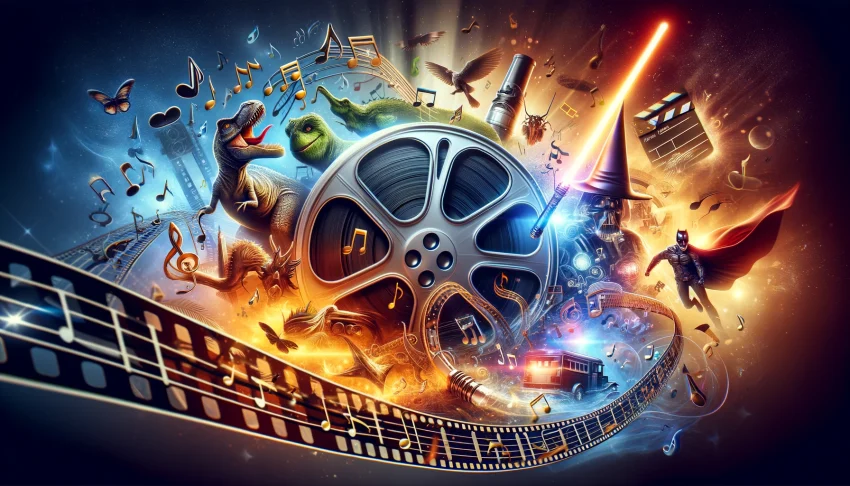In the world of cinema, music is far more than a mere background element; it’s a vital component that can elevate a film to the status of a cultural phenomenon. The success of many blockbuster movies can be attributed not just to their visual spectacle and storytelling, but also to their powerful and memorable soundtracks. This article explores how music plays a crucial role in the success of blockbuster movies, touching on various aspects such as emotional resonance, thematic reinforcement, cultural impact, and commercial success.
Emotional Resonance and Audience Engagement
Music in movies is a potent tool for manipulating emotions. A well-composed score can amplify the emotional impact of a scene, making the audience feel the tension, joy, sorrow, or excitement the characters are experiencing. For example, the haunting score of “Jaws” intensifies the fear and anticipation of the unseen danger lurking in the depths. Similarly, the triumphant fanfare of “Star Wars” immediately evokes a sense of adventure and heroism. These soundtracks become inseparable from the movies’ emotional landscapes, deeply engaging the audience and enhancing the overall cinematic experience.
Thematic Reinforcement and Narrative Enhancement
A movie’s soundtrack often plays a crucial role in reinforcing its themes and enhancing its narrative. For instance, the ethereal and otherworldly sounds in “Avatar” underscore the film’s themes of alien wonder and ecological interconnectedness. In “The Lord of the Rings,” Howard Shore’s score complements the epic narrative, with different themes representing various cultures and characters, thereby enriching the story’s depth and complexity.
Cultural Impact and Iconicity
The music of blockbuster films often transcends the movies themselves, becoming embedded in popular culture. Iconic themes like those from “Harry Potter,” “Jurassic Park,” and “Indiana Jones” have become instantly recognizable, even to those who may not have seen the films. These soundtracks contribute to the films’ legacies, as they are repeatedly referenced, parodied, and used in various other media, cementing the movies’ places in cultural history.
Commercial Success and Soundtrack Sales
The commercial success of a movie can also be boosted by its soundtrack. Successful soundtracks often enjoy high sales and streaming numbers, contributing to a film’s overall revenue. For instance, the soundtrack of “The Bodyguard” not only enhanced the film’s appeal but also became one of the best-selling albums of all time. The integration of popular music, as seen in the “Guardians of the Galaxy” series, can also bring a new dimension to a film’s appeal, attracting audiences through a curated selection of nostalgic hits.
Setting the Scene and World-Building
Music is integral to establishing a film’s setting and building its world. The jazz-infused score of “La La Land” sets the scene for its Los Angeles-based, dream-chasing narrative, while the eclectic soundtrack of “Blade Runner” complements its neo-noir, dystopian world. These soundtracks don’t just support the visual elements; they become an essential part of the world-building, immersing the audience in the film’s unique universe.
Evolution of Movie Music and Technology
The evolution of technology has also played a role in how music is used in blockbuster films. Advances in sound design and music production have allowed for more intricate and immersive soundscapes. The use of surround sound, for example, can create a more engaging and realistic experience, as seen in action-packed blockbusters like “Mad Max: Fury Road” or “Avengers: Endgame.”
